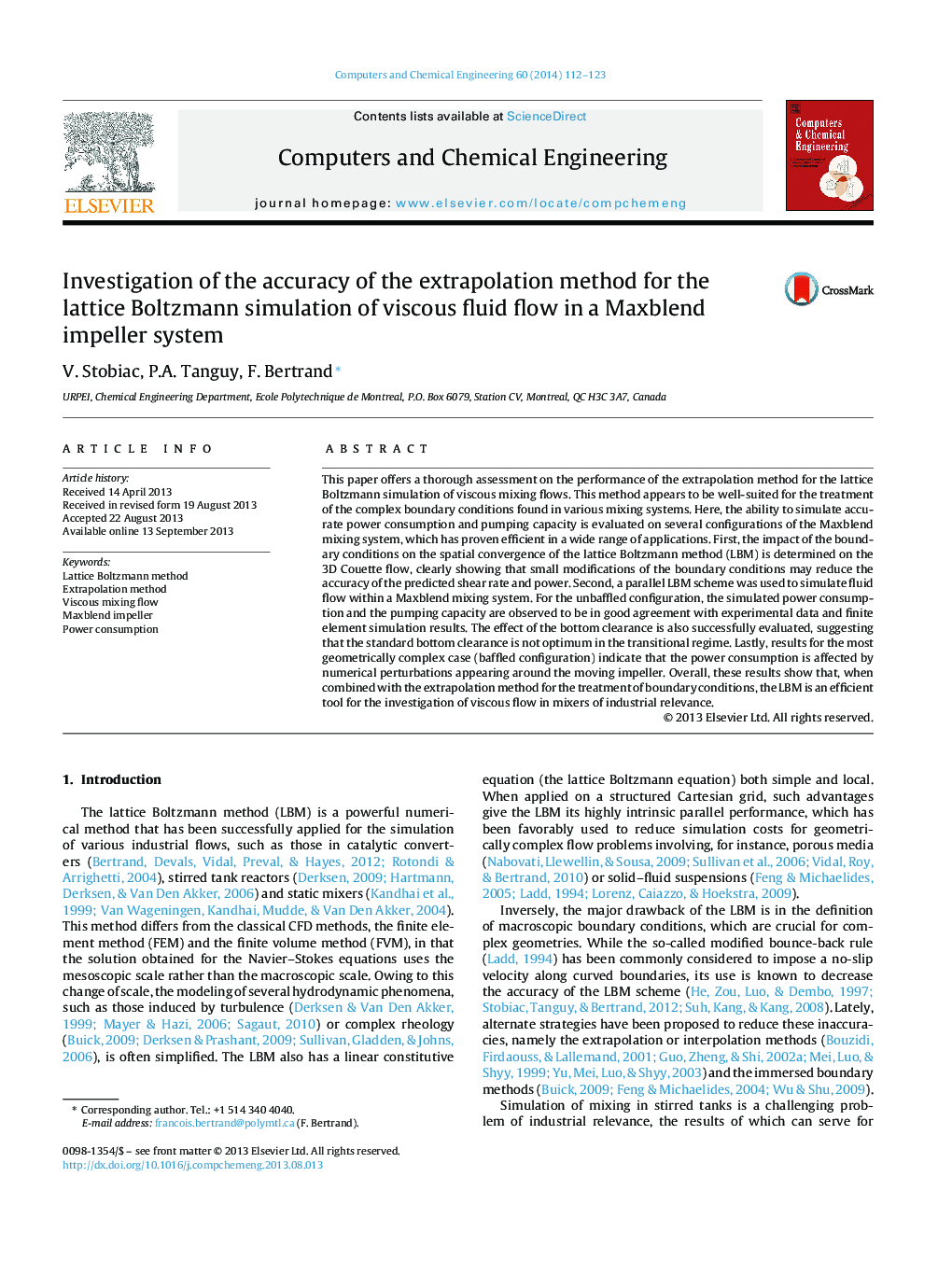| Article ID | Journal | Published Year | Pages | File Type |
|---|---|---|---|---|
| 172429 | Computers & Chemical Engineering | 2014 | 12 Pages |
•Fluid flow in the Maxblend mixing system is simulated with the lattice Boltzmann method.•The extrapolation method is adequate for the treatment of the boundary conditions.•Shear rate and power predictions are sensitive to boundary conditions.•There is an optimum bottom clearance, the value which depends on the flow regime.
This paper offers a thorough assessment on the performance of the extrapolation method for the lattice Boltzmann simulation of viscous mixing flows. This method appears to be well-suited for the treatment of the complex boundary conditions found in various mixing systems. Here, the ability to simulate accurate power consumption and pumping capacity is evaluated on several configurations of the Maxblend mixing system, which has proven efficient in a wide range of applications. First, the impact of the boundary conditions on the spatial convergence of the lattice Boltzmann method (LBM) is determined on the 3D Couette flow, clearly showing that small modifications of the boundary conditions may reduce the accuracy of the predicted shear rate and power. Second, a parallel LBM scheme was used to simulate fluid flow within a Maxblend mixing system. For the unbaffled configuration, the simulated power consumption and the pumping capacity are observed to be in good agreement with experimental data and finite element simulation results. The effect of the bottom clearance is also successfully evaluated, suggesting that the standard bottom clearance is not optimum in the transitional regime. Lastly, results for the most geometrically complex case (baffled configuration) indicate that the power consumption is affected by numerical perturbations appearing around the moving impeller. Overall, these results show that, when combined with the extrapolation method for the treatment of boundary conditions, the LBM is an efficient tool for the investigation of viscous flow in mixers of industrial relevance.
